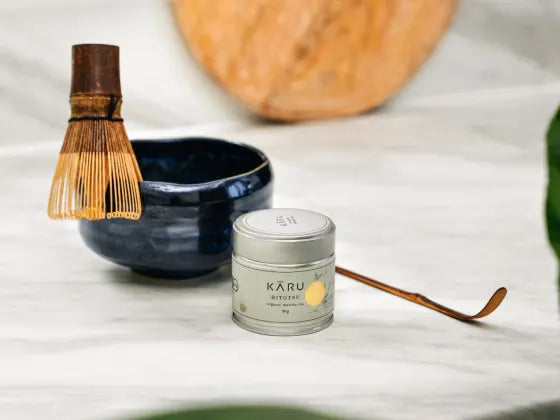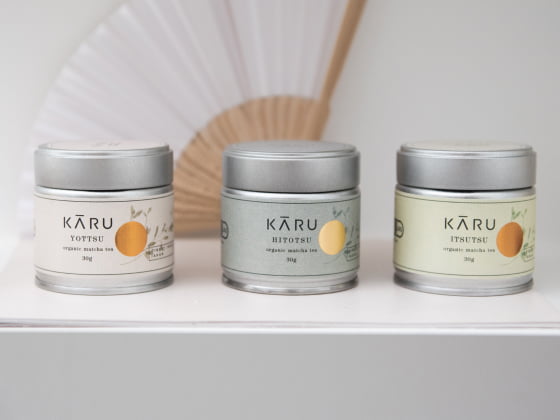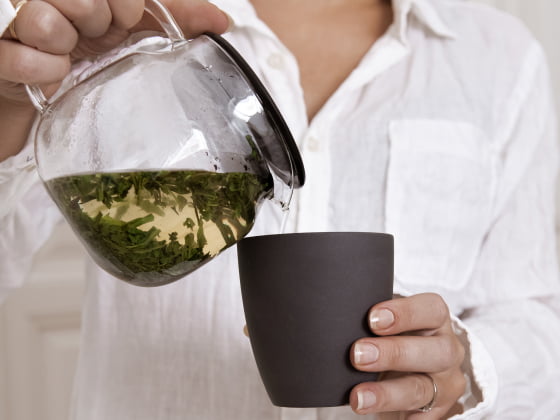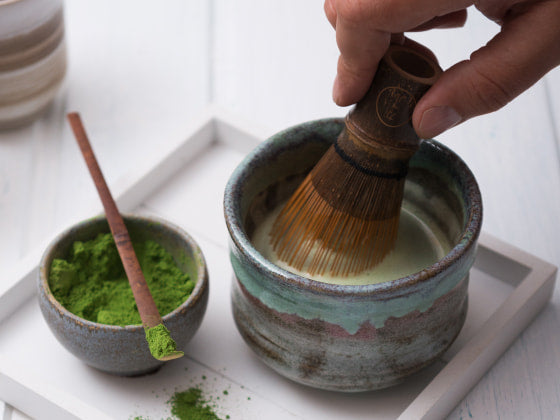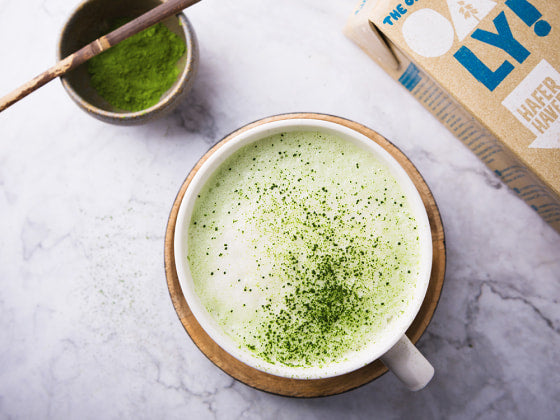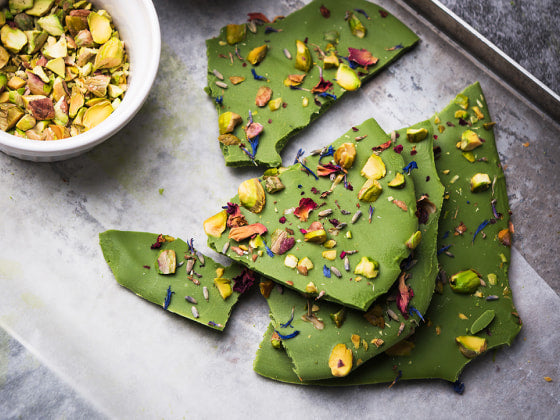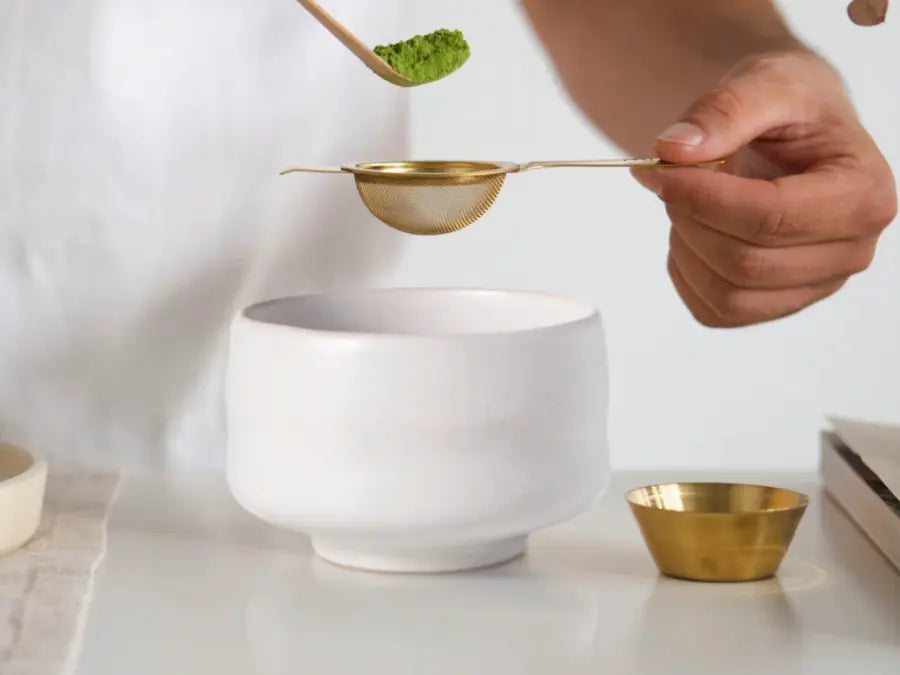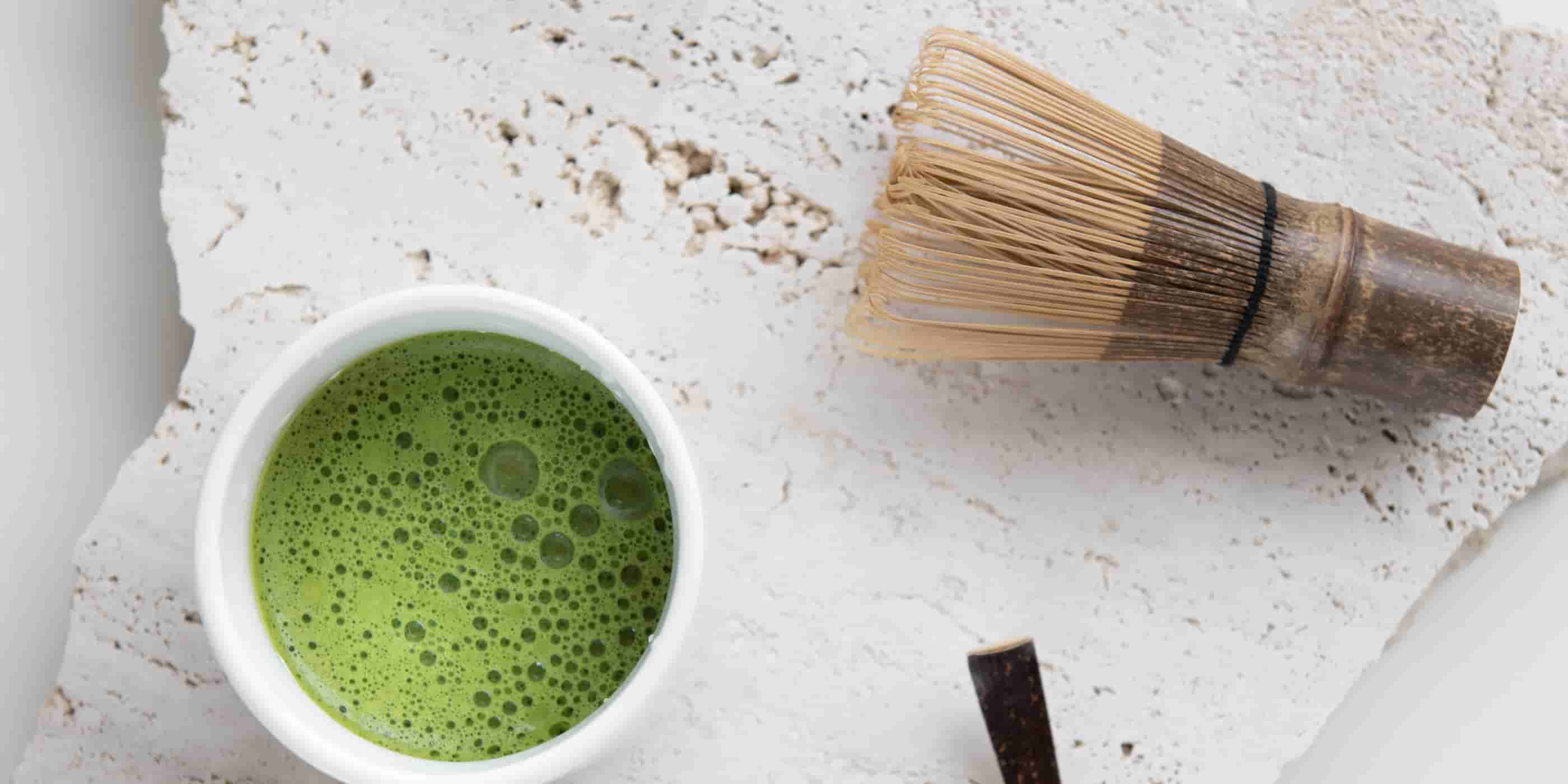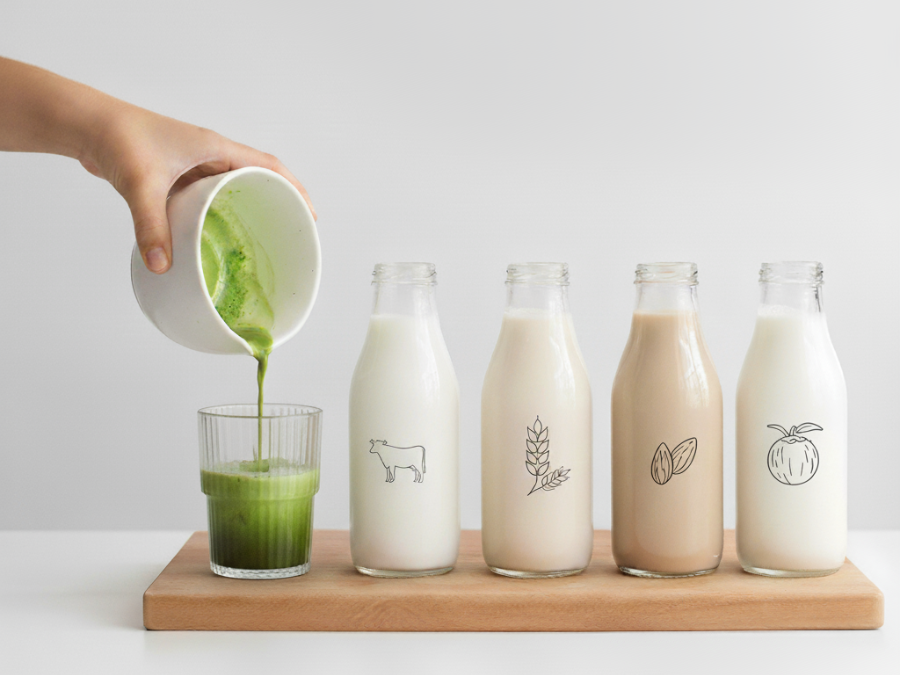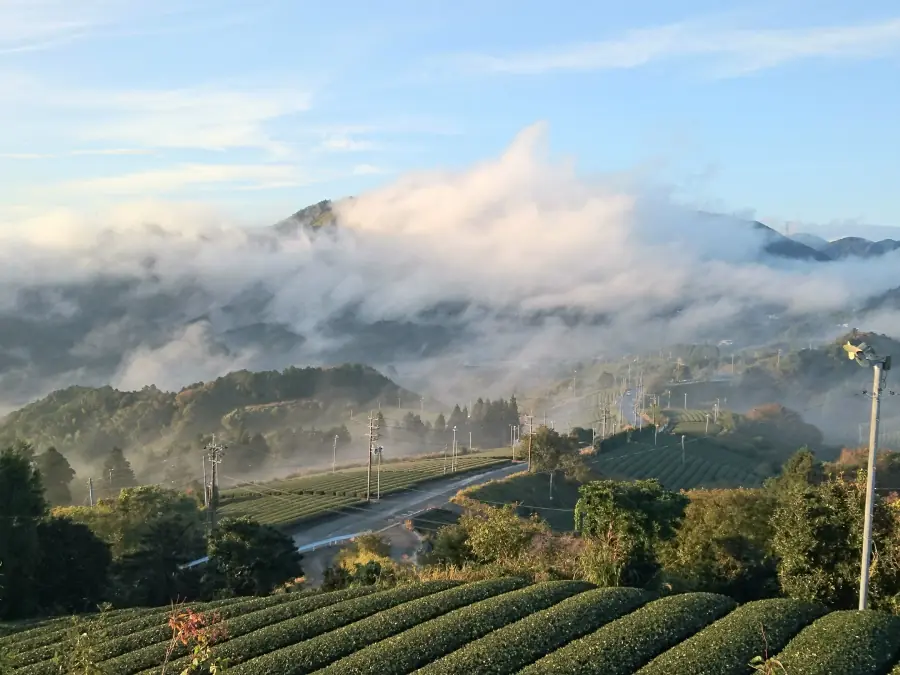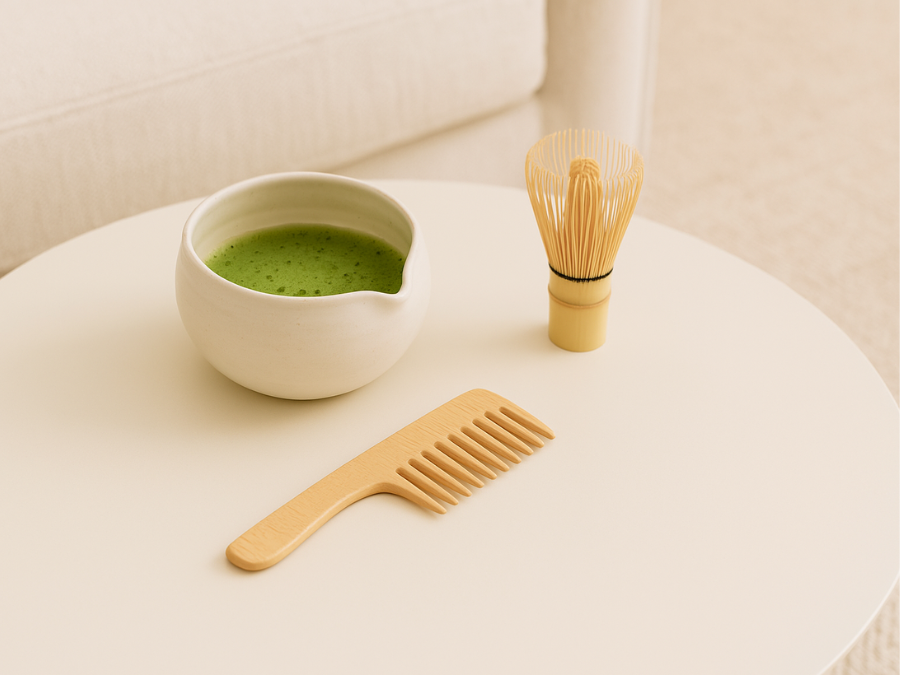"No metal in matcha tea!" - You hear this phrase all the time. No stainless steel strainer, no metal spoon, no metal tin in the cupboard. But is it true - and why do so many people believe it?
The assumption behind it: Metal is supposed to distort the delicate flavor through oxidation, impair the taste or even destroy valuable nutrients. A myth that persists - and leaves many in doubt, even though drinking matcha is supposed to be pure relaxation.
But how much truth is there really behind it? Where does this myth come from - and what does science have to say about it? The short answer: You can continue to use your strainer and teaspoon with complete peace of mind - it won't affect the taste or quality of your matcha in any way.
However, like every myth, there is a grain of truth at the root. In this article, you will find answers to the questions you may have been asking yourself about matcha and metal for a long time - and you will also find out what your matcha powder really needs, which accessories are useful and how you can easily keep it fresh, green and delicious.
Matcha & metal: the myth explained
So why do so many people believe that metal is bad for matcha tea?
The idea behind it sounds logical at first: matcha is a particularly fine powder, rich in aromas, antioxidants and sensitive plant substances. All ingredients that react quickly to their environment.
The myth therefore says that if matcha comes into contact with metal - for example through a stainless steel sieve or a metal spoon - the fine, umami-rich aroma will suffer. Some say that metal can give off a slight aftertaste, while others claim that it accelerates (or causes) the taste. oxidationwhich is said to rob the tea of its color, taste and active ingredients.
In fact, this claim can still be found today in many forums, blogs and even in some product descriptions. It probably has its origins primarily in the Japanese tea ceremony, where metal is often deliberately avoided. But not because it would be chemically problematic - but because the ceremony stands for tranquillity, naturalness and craftsmanship. Bamboo, matcha bamboo whisks and a ceramic matcha bowl create an atmosphere that everyone immediately associates with mindfulness - cool stainless steel simply doesn't fit the bill.

Over the years, a cultural tradition has become a supposed scientific fact - and a myth that persists to this day.
But what does science really say? It's worth taking a look at the facts.
Why matcha powder is so sensitive
To understand whether metal harms your matcha tea, let's take a look at the green powder in more detail: A brief overview shows that matcha consists of finely ground, shade-grown green tea leaves.
-
Its specialty lies in the balanced mixture of amino acids - especially L-theanine - and catechins, antioxidant plant substances that give it its gentle, rich aroma and subtle bitterness.
-
The bright green color is due to the many chlorophyllwhich accumulates in the leaves during the elaborate shading process.
-
Caffeine also makes matcha a gentle stimulant.
The extremely fine grinding creates a particularly large surface area - and this is precisely what makes matcha so sensitive to external influences. It therefore reacts very sensitively to light, heat and moisture and requires special care during storage and preparation.
Metal is also repeatedly cited as a risk factor - but is this really true?

Does matcha powder react with metal?
Yes - matcha can oxidize with metal. This is a chemical reaction with oxygen that changes the composition of the matcha. This is the same process that causes iron to rust or leaves to change color in autumn.
However, not every metal is automatically a problem. The decisive factor is which metal comes into contact with matcha - and under what conditions.
Reactive metals like iron or copper can actually trigger oxidation under certain circumstances - especially when moisture, heat and prolonged contact time are added. In such a case, ingredients such as catechins could react and the aroma or color could be impaired.
Harmless materials such as stainless steel or tinplatewhich are most commonly used in the kitchen. These metals are considered stable and inert - they do not trigger any interactions and do not affect the quality of the matcha, even with regular use or prolonged storage.
Means: An ordinary stainless steel spoon, a stainless steel strainer or a modern milk frother are completely unproblematic. Your matcha will remain aromatic and fresh - as long as you enjoy it immediately after preparation and always seal it tightly.
Matcha can actually oxidize - but differently than expected
Oxidation does indeed occur with matcha - but not primarily through contact with metal, but through humidity, Oxygen and heat. These three factors are the true antagonists when it comes to keeping matcha fresh and of high quality.
Due to the fine structure of the powder, matcha has a particularly large surface area to attack - this makes it sensitive to its environment. If the powder is left open for a long time or comes into contact with moisture, the color, taste and active ingredients can slowly change.
In the case of matcha, this means that after mixing, sensitive ingredients such as catechins begin to react with oxygen, which gradually affects the taste, color and nutrients. scientific study shows. This effect is particularly noticeable around 30 to 60 minutes after preparation.
This does not mean that you have to drink your matcha within seconds - but: It simply tastes best fresh. Whether as pure tea or a creamy matcha latte - if you enjoy your tea straight after steeping and keep the powder well sealed, you will get the best out of your matcha.

How to avoid oxidation - our tips for storage & matcha preparation
To keep your matcha fresh, green and aromatic for a particularly long time, you can use the right preparation method and a few simple tricks as part of your routine, you can easily avoid oxidation and loss of aroma without much effort.

This will keep your matcha fresh and effective:
-
Store in a cool, dry place:
Always keep your matcha powder in an airtight container - preferably in a dark tin or alternatively in a cool storage cupboard. This will preserve the quality in the long term. -
Always mix fresh:
Only mix your matcha powder with water shortly before drinking or prepare a matcha latte completely fresh. This way, everything you love about your drink is retained with its full effect until the last sip. -
No unnecessary heat:
Never pour boiling water over matcha. The ideal temperature is 70-80 °C - this protects the sensitive active ingredients. -
Observe light protection:
Matcha does not like the sun - store it in a lightproof container to protect the color and taste.
Why hardly any metal is used in Japan despite this
You may be wondering now: If metal is not a problem for matcha from a chemical point of view - why is it used in Japan in the tea ceremony (tea ceremony) almost always do without it?
The answer lies in the philosophy behind Matcha. Matcha stands for mindfulness, tranquillity and a close connection to nature. In this context, metal often seems too cool and industrial - bamboo, wood and ceramic blend much more harmoniously into the atmosphere of the tea ceremony.
Added to this is the symbolismEach tool has its own meaning. The bamboo broom (matcha broom - chasen) stands for simplicity and purity, the bamboo spoon (Matcha spoon - Chashaku) stands for respect and harmony with nature. The handmade Matcha bowl or tea bowl emphasizes the appreciation for the ritual, the special shape and the craftsmanship behind it.

So metal does no harm - but the Japanese deliberately do not use metal tools in the tea ceremony in order to preserve the matcha ritual as close to nature and mindful as possible.
Conclusion: Don't be afraid of metal - enjoy your organic matcha in a relaxed way!
Your matcha loves care, but it has not afraid of metal. Whether stainless steel sieves, spoons or metal tins - none of this harms the taste or the valuable ingredients. What really counts is the correct handling of light, air and moisture. Because it is precisely these factors that influence the quality of your tea much more than any material.
Metal is therefore not a problem - as long as you pay attention to freshness and good storage. Even in the traditional tea ceremony in Japan, the absence of metal is more a matter of aesthetic value than chemical necessity. So you can stay relaxed: Your metal spoon is guaranteed not to ruin your matcha.
In short: trust in high-quality accessoriesEnjoy your cup of matcha carefully and freshly prepared - don't let persistent myths put you off. The choice is yours: your matcha knows what it needs to maintain its quality. And now you do too.




